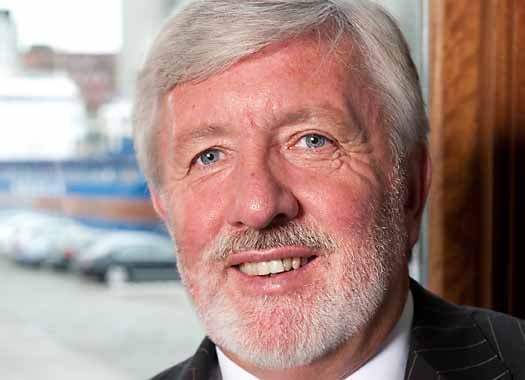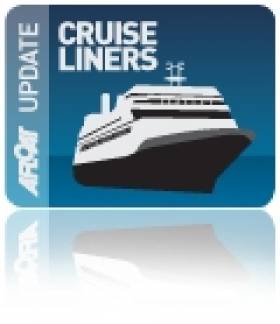Displaying items by tag: Royal Greenwich
Cruise Europe Appoints Port of Cork Official
#CRUISE SHIP SECTOR – Cruise & Ferry reports that Captain Michael McCarthy of the Port of Cork Company was unanimously chosen to become the new chairman of industry association Cruise Europe.
At the association's conference held last month at Royal Greenwich, McCarthy was chosen to replace Dirk Moldenhauer, who held the role for the last four years.
With 40 years of maritime experience in positions as varied as master at sea, marine surveyor and deputy harbour master, McCarthy is currently commercial manager at the Port of Cork Company.

Captain Michael McCarthy is the new new chairman of industry association Cruise Europe
McCarthy thanked Moldenhauer for steering Cruise Europe through a modernization process and making it more professional and responsive to the requirements of its members. He said Cruise Europe's vision was "to deliver to the cruise companies a world class cruise destination on behalf of our members" and that he would continue working with members to promote and develop "must see" North and Atlantic European destinations.
He added: "We are facing major challenges and it is vital that Cruise Europe members support the cruise lines through greater communications and develop outstanding service while keeping costs tightly under control, particularly as the lines adapt to the Emissions Control Area regulations from 2015."
Port of Cork press release below:
PRESS RELEASE
Captain Michael McCarthy, Port of Cork, Elected as Chairman of Cruise Europe
Irish Cruise Line Business Worth an Estimated €60M to the Irish Economy
At the Cruise Europe Conference 2012 held at Royal Greenwich, London in April, Captain Michael McCarthy of the Port of Cork, was unanimously elected Chairman of Cruise Europe. Michael brings over 40 years of maritime experience to the position having served as Master at sea, Marine Surveyor, Deputy Harbour Master and is currently Commercial Manager with the Port of Cork Company.
Michael endorsed the vision of Cruise Europe which he said is "to deliver to the cruise companies a world class cruise destination on behalf of our members". Between 2005 & 2010, there has been an increase of 84% growth in the economic impact of the European Cruise Industry, bringing the total contribution to €35 billion.
On average there are over 200 cruise calls to Ireland per year carrying approximately half a million passengers and crew. This cruise business contributes an overall economic contribution estimated to be worth €60 million to the island of Ireland.
Commenting on the Irish cruise business, the newly elected chairman of Cruise Europe, Captain Michael McCarthy said: "There are many indirect economic and tourism benefits to Ireland from the cruise sector, as well as the benefit of introducing Ireland to new markets and growing business opportunities. Cruise visits help to showcase Ireland's world class shore products, destinations and highlight all that Ireland has to offer visitors."
He continued: "One of Ireland's advantages is the strategic and geographic spread of its numerous ports, many of which are in close proximity to world class tourism destinations and it is with this in mind that Ireland will be promoted with the North and Atlantic European destinations to develop thriving and "must see" destinations."
The cruise industry, as a whole, faces major challenges and it is vital that Cruise Europe members support the cruise lines through effective communications and develop an outstanding service while keeping costs tightly under control, particularly as the lines adapt to the ECA [Emissions Control Area] regulations from 2015.
"These regulations, which will come into force on January 1st 2015, will reduce sulphur limits in fuel to 0.10%. This will result in vessels operating from the English Channel through the North Sea into the Baltic from 2015, to have increased operating fuel costs of over 50%."
McCarthy also outlined the benefits of being a member of Cruise Europe and the commitment to working closely with the ECC and other representative organizations.
























































